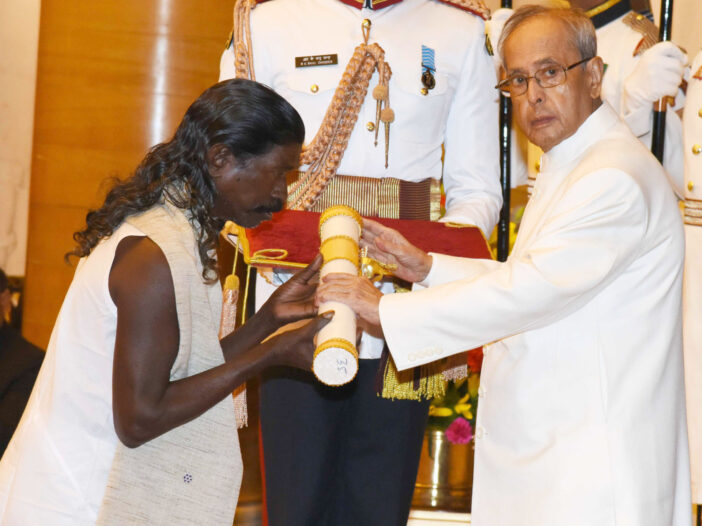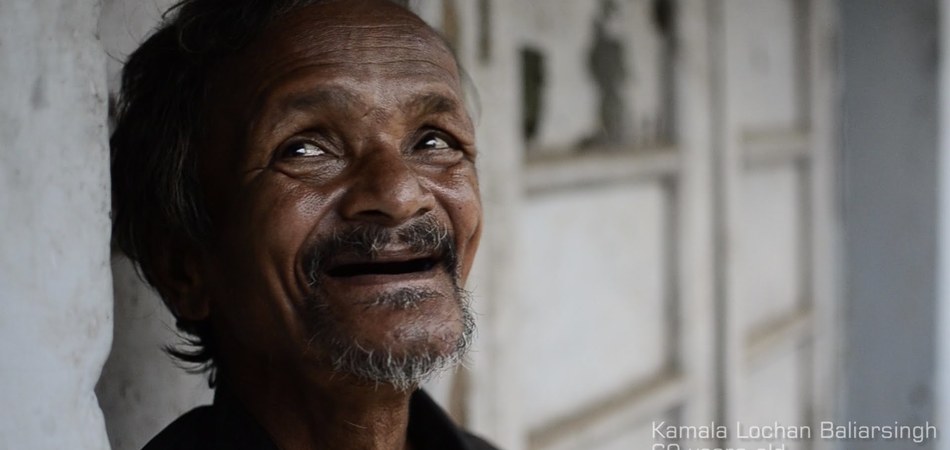
He has barely attended school, but five scholars have based their PhD research on this writer and poet from western Odisha who received the Padma Shri from the President recently.
Haldhar Nag, the 66-year-old poet in Kosli language, remembers all the poems and 20 epics that he has penned. Sambalpur University is now coming up with a compilation of his writings – Haldhar Granthabali-2 – which will be a part of the university’s syllabus.
“He remembers whatever he writes and has been reciting them. You just need to mention the name or subject. He never misses anything. Now he attends at least three to four programmes every day to recite his poems,” said a close associate of the poet.
It’s great to see the huge interest of young people in poems in Kosli. Everyone is a poet, but only a few have the art of giving them shape.Haldhar Nag
Nag has never worn any footwear and always dons a white dhoti and a vest. He says he feels free in the attire.
Background of Haldhar Nag
Born in a financially humble family of Ghens in Bargarh district of Odisha in 1950, Nag could attend school only up to Class-III. He dropped out after losing his father when he was 10. He had no option but to work as a dishwasher at a local sweet shop.
“Life of a widow’s child was tough”
Two years later, a village head took him to a high school where he worked as a cook for 16 years.
But soon, a number of schools came up in the area. He approached a banker and got Rs 1,000 loan to start a small shop selling stationeries and eatables for school students.
It’s during this period, Nag wrote his first poem ‘Dhodo Bargachh’ (The Old Banyan Tree) in 1990, which was published in a local magazine. He sent four poems to the magazine and all of them got published.
“I was felicitated and that encouraged me to write more. I started touring nearby villages to recite my poems and got huge response.”
Known as Lok Kabi Ratna in Odisha, Nag, who draws his themes from the rustic surroundings, writes mostly on nature, society, mythology and religion. He also takes up the cause of the oppressed and social reforms through his writings.
“In my view, poetry must have real-life connection and a message for the people,” Nag said.
Courtesy: The Times of India



What Do You Think?